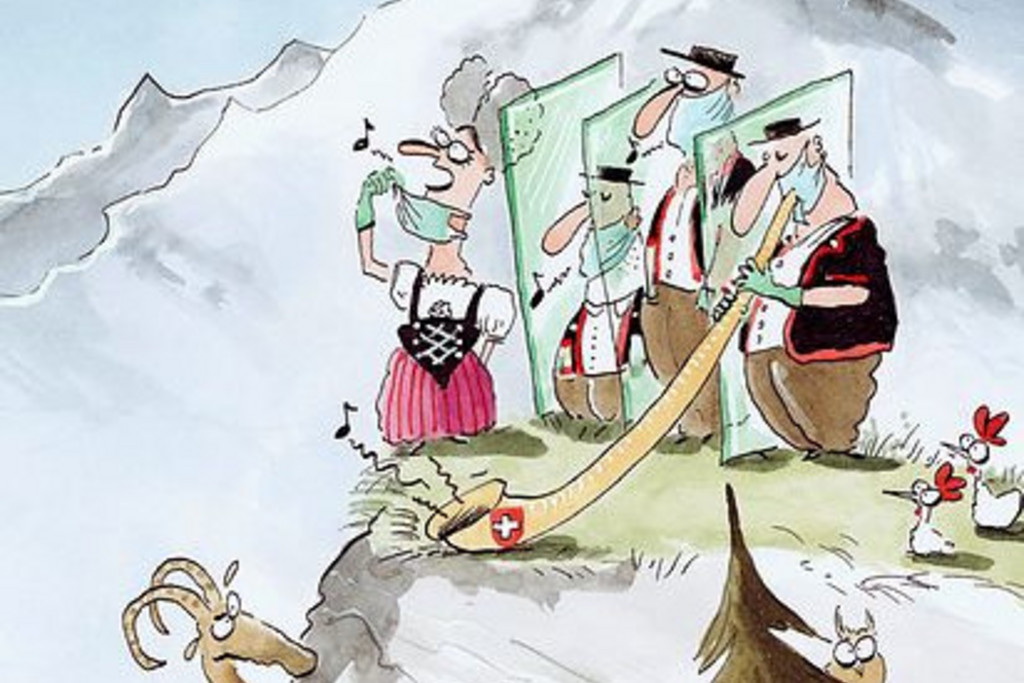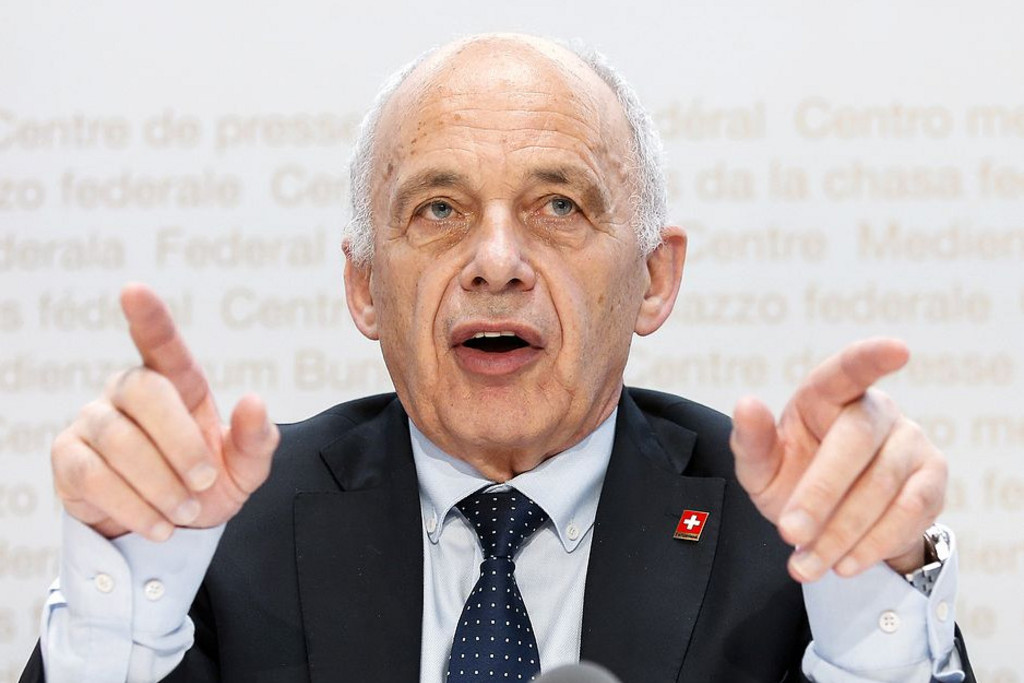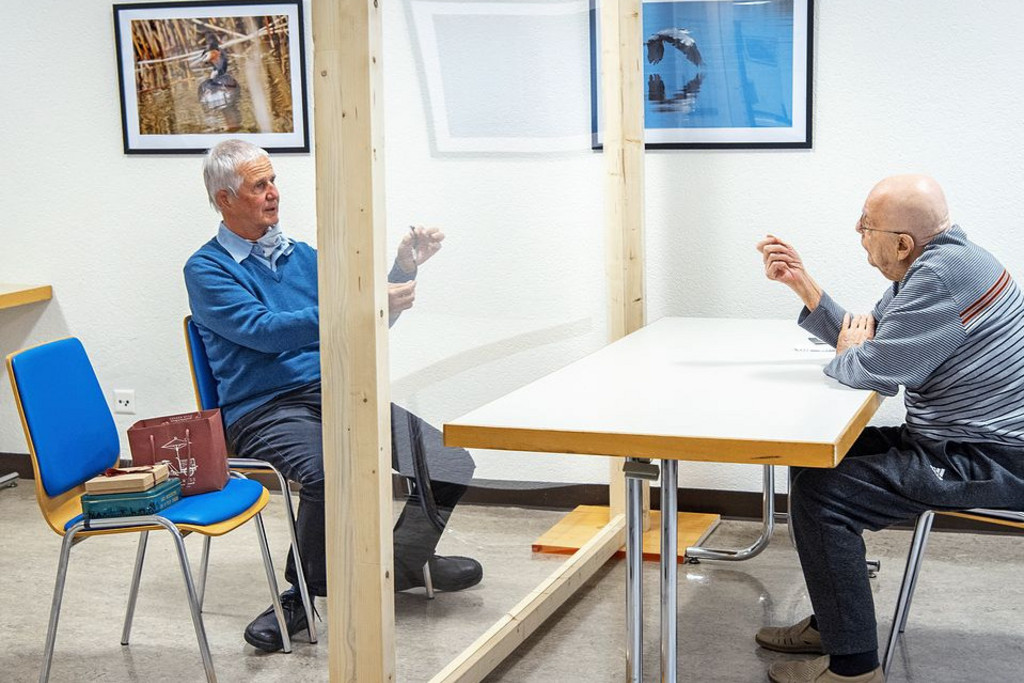
When satire suddenly toed the line

“Go on holiday in Switzerland”

Equality of opportunity compromised

The Swiss experience a new way of life

“Help is on its way” – Switzerland’s multibillion bailout

The high-risk group


Nursing staff in Switzerland: feted as heroes during the pandemic, they have had to go above and beyond the call of duty for quite some time now. Parliament has plans to improve their situation, although the nurses say this is not enough. The people will now decide on the nursing care initiative.
Switzerland in late spring 2021: the number of infections was going down, garden restaurants and gyms opened again, the vaccination campaign was progressing. People did not want to hear any more talk about Covid-19. However, in the hospitals, it was a different story. Healthcare personnel were still fighting to save lives. The third wave saw younger people in particular ending up in intensive care. “It put extraordinary pressure on the nursing staff again,” says Yvonne Ribi, managing director of the Swiss Professional Association of Nurses (SBK).
For almost one and a half years, the nursing staff “have given their all, in hospitals and retirement homes”, says Ribi. Now they are exhausted, “physically, psychologically and emotionally”. The people were grateful for the massive effort by healthcare staff. On a given day in March 2020, they applauded all across the country from their balconies. This broad public recognition also raised awareness of nurses’ situation. The largest professional group in the Swiss healthcare system has been pointing out their problematic employment conditions for a number of years.
The fact that average monthly salaries have hardly increased in years is just one bone of contention. Pressure at work is the main issue for nursing staff. There is not enough time to care properly for the patients and retirement home residents, they say. Of course it is true that professional groups represent their own interests. Healthcare costs in Switzerland are rising, the financial pressure on institutions is increasing. And nursing by its very nature is a sensitive area when it comes to cutting costs. By European standards, nursing in Switzerland is admittedly not badly off in terms of the number of nursing staff per thousand inhabitants. Nevertheless, the complaints are not unfounded.

There are not enough qualified nurses in the country. Thousands of jobs remain unfilled; teams have to work round that. Moreover, given the growing number of old people and the increase in chronic illnesses, the situation may well worsen. According to an expert report, there will be a shortfall of 65,000 nurses across all training levels by 2030 if no action is taken. This is partly due to the fact that only about half of the number of nurses in Switzerland that will be required in the future are currently undergoing training. As a result, there is a lot of recruitment from outside the country.
Qualified nurses find their work fulfilling. At the same time, the demands of the job plus the shifts are draining. More than 40 per cent of nursing staff in Switzerland, many of whom are relatively young, are leaving the profession, according to a report by Swiss Health Observatory Obsan. The turnover rate is higher in nursing than in other healthcare sector jobs. The “for strong nursing” initiative submitted in 2017 aims to counter this situation. The petition was initiated by the SBK and is the largest mobilisation in the professional association’s history. The nursing initiative calls for improved training, quality assurance through more staff, fair employment conditions and improved recognition of the profession.
The immense pressures have had a major impact on nurses’ health.
Ticino SP member of the Council of States and doctor
For the Federal Council and parliament the initiative goes too far. They argue that regulations regarding specific professional groups do not belong in the Federal Constitution. The cantons and social partners should decide on nurses’ employment conditions themselves. However, the pandemic has prompted parliament to address some of these concerns via an indirect counterproposal. The Federation and cantons intend to contribute almost a billion Swiss francs towards training more nursing staff in Switzerland. Moreover, nurses will be able to charge certain services directly to the health insurer.
This will mean the end of a legal anachronism: nurses in Switzerland can complete a Master’s degree and carry a lot of responsibility on a daily basis. At the same time, their services must, to date, be prescribed by a doctor in order for the health insurance to pay. Nurses will now have more competencies. A majority in both chambers of parliament agreed that action at a political level is needed to address the skills shortage. There are indications that the proportion of people leaving the profession will increase further following the pandemic, said Ticino SP member of the Council of States and doctor Marina Carobbio
For the people behind the nursing initiative the counterproposal represents a major achievement. Nonetheless, they took the decision before the summer break to stick to their guns. The issue will go before the people, in November at the earliest. The SBK is insisting on the points that parliament failed to entertain, especially regarding a tangible improvement in employment conditions. It says binding requirements are needed, such as a maximum number of patients for a nurse to attend to during a shift.
What use is improved training when so many nurses are leaving the job?
Managing director of the Swiss Professional Association of Nurses (SBK)
Federal involvement is needed because it is a question of the financing mechanisms in the Swiss healthcare system. Nurses are not paid enough, she argues. Healthcare institutions also want to see improvements in remuneration. Nevertheless, they prefer the indirect counterproposal. If the people and cantons approve the initiative, the parliamentary process would then start from the beginning and the urgent measures taken to address the skills shortage would be delayed by years, say the associations representing hospitals, care homes and Spitex.
If the initiative is rejected at the polls, the counterproposal will come into force. Basel CVP cantonal government member Lukas Engelberger, president of the Conference of Cantonal Health Directors, defends the compromise. The allocation of staff cannot be determined from the top, he says, and the initiative could entail high costs. One thing is for sure: Swiss nursing professionals are now counting on the support of the people. The prospects look good – not least due to Covid-19, a once in a century crisis.
Comments